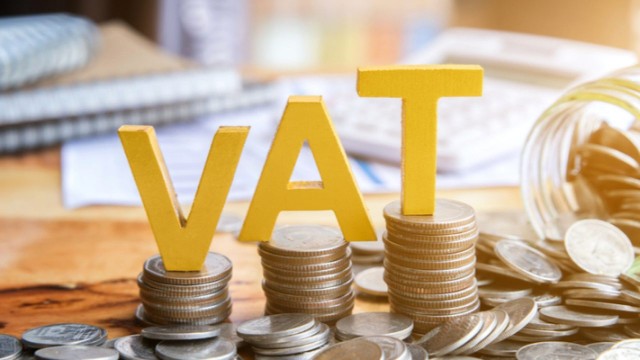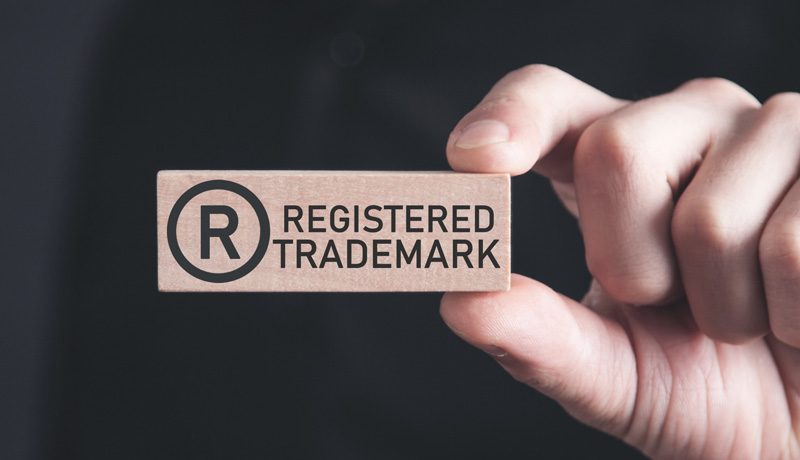The Value Added Tax Act[1] (“VAT Act”) was one of the seven (7) principal tax statutes amended by the Finance Act, 2019 (“Finance Act”). Being a tax chargeable on the supply of all non-exempt goods and services, VAT affects more transactions than other taxes and, consequently, attracts wide interest.
The scope of some of the amendments to the VAT Act is unclear, as the relevant provisions in the Finance Act leave some gap in terms of interpretation and implementation, leading taxpayers to seek clarifications. In response to the foregoing, the Federal Inland Revenue Service (“FIRS”) issued an Information Circular, dated April 29, 2020 (the “Circular”), providing clarifications and guidance on the procedure for the implementation of the provisions of the Finance Act dealing with VAT. The Circular also amends, updates and replaces conflicting contents of all other VAT-related circulars, notices and publications previously issued by the FIRS.

We have highlighted below the key issues addressed in the Circular.
DEFINITION OF TAXABLE SUPPLY OF “GOODS” AND “SERVICES”
Whilst the VAT Act simply defines taxable goods and services as those that are not listed in the First Schedule to the VAT Act, the Finance Act goes a step further by defining what generally constitutes goods and services for VAT purposes. It also defines what constitutes taxable supplies. “Goods” is defined to mean: (a) all forms of tangible properties that are movable at the point of supply, but does not include money or securities; and (b) any intangible product, asset, or property over which a person has ownership or rights, or from which he derives benefits, and which can be transferred from one person to another, excluding interest in land. “Services” is defined as anything other than goods, money or securities which is supplied, excluding services provided under a contract of employment. “Taxable supplies” means any transaction for the sale of goods or the performance of a service, for a consideration in money or money’s worth.[2]

The Finance Act further provides that goods shall be deemed to be supplied in Nigeria, for VAT purposes, if: (i) the goods are physically present in Nigeria at the time of supply, imported into Nigeria for use by a person, assembled in Nigeria, or installed in Nigeria; or (ii) the beneficial owner of the rights in or over the goods is a taxable person in Nigeria and the goods or right is situated, registered or exercisable in Nigeria. Similarly, services are deemed to be supplied in Nigeria for VAT purposes if: (i) the services are rendered in Nigeria by a person physically present in Nigeria at the time of service provision, or (ii) the services are provided to a person in Nigeria, regardless of whether the services are rendered within or outside Nigeria.[3]
With respect to the foregoing, the Circular provides the following clarifications:
- VAT is chargeable on goods (including tangible or intangible property) and articles of trade;
- VAT is chargeable on rights in goods or property (such as rights in mineral resources, copyrights, and trademarks);
- VAT is chargeable on property (movable or immovable) such as assets, motor vehicles, oil wells, rigs, aircrafts, ships, buildings, roads, jetties, or any other type of property;
- VAT is chargeable on services rendered in Nigeria by a person physically present in Nigeria at the time of providing the service;
- VAT is chargeable on services provided to a person in Nigeria, regardless of whether the services are rendered within or outside Nigeria;
- VAT is chargeable on services performed in Nigeria to persons in Nigeria, irrespective of the residence status of the service provider;
- VAT is chargeable on services provided to persons while in Nigeria regardless of the medium of delivery of the services;
- VAT is chargeable on services rendered remotely, online, or by virtual means to Nigerian residents or persons in Nigeria; and
- Services rendered to and consumed by a Nigerian resident while physically outside Nigeria are not liable to VAT in Nigeria.
We note that the Circular did not clarify whether the sale of “shares” is vatable even though such clarification would have been helpful to taxpayers, particularly in relation to transactions involving share transfer. Shares are not tangible assets; thus, the exclusion of “securities” from the scope of tangible assets is itself a misnomer since the nature of securities, in the first instance, makes that exclusion inapplicable. Curiously, “securities” are not specifically excluded from the definition of “intangible assets” in the Finance Act, even though securities ordinarily constitute intangible assets. One way of resolving this conundrum is to contend that the “ambiguity” in the definition of intangible and tangible goods, in the Finance Act, should be construed in favour of taxpayers (such that the exclusion of “securities” should be treated as being applicable to intangible assets rather than tangible assets), since it is now settled law that ambiguities in tax legislation are construed in favour of taxpayers.[4]
However, it is useful to note that the Minister of Finance, acting pursuant to powers conferred by Section 38 of the VAT Act, issued the Value Added Tax (Exemption of Proceeds of the Disposal of Government and Corporate Securities) Order, 2011 (the “VAT Exemption Order”) in December 2011, which exempts proceeds from the disposal of short-term government and corporate bonds/securities from VAT, for a period of ten years beginning from its commencement date of January 2, 2012.

Therefore, it can be argued that the VAT Exemption Order suggests that the disposal of such securities was hitherto subject to VAT (especially since the VAT Act prior to the Finance Act did not include securities in the exemption list contained in the First Schedule to the VAT Act) and that the Order was issued in order to specifically exempt government securities and corporate bonds from VAT during the period specified in the Order; and thus, the aforesaid provisions of the Finance Act are intended to extinguish any doubt that sale of securities is subject to VAT, save to the extent exempted under the Order.
TRANSITION TO THE NEW VAT RATE
The Finance Act increased the applicable VAT rate in Nigeria from the 5% (specified in the VAT Act) to a new rate of 7.5%, without stating the commencement date for implementation of the new rate. Taxpayers had generally assumed that January 13, 2020 (being the commencement date of the Finance Act) was the effective date of the new rate but that position was fraught with accounting difficulties. The Circular clarifies that the new rate takes effect from February 1, 2020. This clarification is a welcome development as it has resolved the confusion amongst taxpayers regarding the effective date of the increased rate.

Further, the Circular refers to section 13A (2) of the VAT Act, which states that “a tax invoice shall be issued on supply whether or not payment is made at the time of supply”, and then provides guidance on what constitutes “the time of supply”, for VAT purposes, as well as transitional arrangements regarding implementation of the new VAT rate. Hence, as clarified by the Circular:
- A service is supplied when it is performed or an agreed milestone is reached;
- Goods are supplied upon delivery or transfer of risk, whichever occurs first;
- With respect to “i” and “ii” above, where it is not practicable to determine the time of supply, the FIRS may rely on the dates indicated on the relevant invoices, bills, debit notes, goods-received notes, waybills, and journal entries etc. to reach a decision;
- The VAT rate for taxable supplies made prior to February 1, 2020 shall be 5%;
- For a contract of taxable supplies signed prior to February 1, 2020 in respect of which supplies or performance occurred on or after February 1, 2020, the applicable VAT rate shall be 7.5%;
- For continuing contracts for which supplies or performance is measured on the basis of milestones achieved, VAT rate for milestones achieved on or after February 1, 2020 shall be 7.5%; and
- For all taxable supplies made from February 1, 2020, the applicable VAT rate shall be 7.5%.
Firstly, we note that, by virtue of Section 6 of the VAT (Amendment) Act No. 12 of 2007, the provisions on Tax Invoice, which the FIRS sought to clarify, is now Section 11(A)2. Notwithstanding the error in the cross reference, we note that the provisions are correctly reproduced by the FIRS in the Circular.
Further, whilst the transitional arrangements provided in the Circular are helpful and commendable, it is difficult to ascertain the legal basis upon which they were made. It is trite law that an Act comes into force on the commencement date stated therein or where no commencement date is stated, on the date it receives Presidential assent[5]. However, we note that the Minister of Finance had announced that the new VAT rate would take effect on February 1, 2020 and that the President had already written a letter to the House of Representatives requesting an amendment of the Finance Act in order to reflect a new commencement date of February 1, 2020. Whilst it appears the adoption of commencement date of February 1, 2020, by the FIRS, is in line with the proposed amendment of the Finance Act, it should be noted that unless and until the proposed amendment is properly concluded by the National Assembly, the clarification by the FIRS in the Circular regarding the commencement date will remain legally unenforceable.
INTRODUCTION OF VAT THRESHOLD
The Finance Act establishes a threshold for taxable persons, by exempting taxable persons with taxable supplies of less than Twenty-Five Million Naira (N25m) from accounting for VAT to the FIRS. Such taxable persons are also exempt from penalties imposed for non-registration for VAT purposes. The Circular clarifies the indices for determining the said N25m threshold, as follows:
- Taxable persons who have made taxable supplies of N25m prior to the introduction of the exemption shall continue to account for VAT, even if they have not made N25m taxable supplies in the current year;
- Taxable persons who did not attain N25m taxable supplies before February 1, 2020, are required to immediately commence accounting for VAT upon attaining the threshold at any time within the year;
- Taxable persons who are yet to attain the N25m threshold may voluntarily register and account for VAT (provided they give prior notification to the FIRS) and will be subject to all provisions of the VAT Act applicable to taxable persons above the threshold);
- Taxable persons who have not attained the N25m threshold but expect to attain the threshold at a future date within the calendar year shall immediately commence accounting for VAT;
- Taxable persons who make taxable supplies amounting to N25m and above within a calendar year are required to file monthly VAT returns to the FIRS, even if part or the whole of such supplies are exempt under the VAT Act. A calendar year, for the purpose of the Circular, is stated to be a period of 12 months beginning on a day marking the start of that year; and
- Taxable persons who attain the N25m. threshold are required to continue collecting VAT and filing VAT returns on a monthly basis.
The Circular clarifies that the value of taxable supplies (see definition above) is the gross inflow of economic benefits (cash, revenue, receivables, and other assets) arising from economic activities, including sale of goods, supply of services, rents, royalties, fees, and rights but excludes a taxable supply of the capital asset, and the sale of the whole or part of the business.
We note that while the clarification of the VAT threshold is helpful as it will make compliance obligations clearer, the provisions allowing businesses below the threshold to volunteer to account for VAT and be subject to all the provisions of the VAT Act applicable to taxable persons within the threshold, as well as those requiring businesses with taxable supplies of less than N25m prior to February 1, 2020 but who expect to attain the threshold in the current year to account for VAT in the month they expect to meet the threshold; appear to have no statutory basis. Thus, the Circular may have overreached the provisions of the Finance Act which the Circular seeks to clarify, by containing such ultra vires provisions.
VAT REGISTRATION AND DEREGISTRATION
The VAT Act mandates all taxable persons to register with the FIRS, for VAT purposes, within six (6) months of the commencement of business or face the prescribed penalties[6]. The Finance Act amends this by removing the 6-month grace period and mandates a taxable person to register for VAT purposes upon the commencement of business in Nigeria[7]. “Commencement of business” is defined in section 46 of the Finance Act[8] as the date on which an entity carries out its first transaction in Nigeria, which shall be the earliest of the date it (i) begins to market or first advertises its products or services for sale (ii) obtains an operating licence from a regulatory authority in Nigeria (iii) makes its first sale or purchase (iv) executes its first trading contract after incorporation (v) issues or receives its first invoice; (vi) delivers or receives its first consignment of goods; or (vii) first renders services to its customers.

The Finance Act equally requires all taxable persons who permanently cease to carry on “a” trade or business in Nigeria, to notify the FIRS of their intention to deregister[9] for tax purposes within ninety (90) days of such cessation of the trade or business. The Circular clarifies that taxable supplies made after such cessation shall be deemed to have been made on the day immediately preceding the cessation. It also clarifies that penalty for failure to file returns will continue to apply, where taxpayers fail to notify the FIRS of cessation of business in Nigeria.
It is noteworthy that the provisions of the Finance Act regarding deregistration for tax purposes was only made meaningful by the clarity provided in the Circular. This is because, from the wording of the Finance Act, it is not clear whether the provisions on deregistration apply to permanent cessation of all trading activities or business operations in Nigeria by an entity, or the permanent cessation of just one trading activity or line of business in Nigeria by such an entity. With the clarification provided in the Circular, it is now clear that FIRS expects taxable business entities to fulfil the statutory requirement of notification of intention to deregister only upon the permanent cessation of all forms of trade or business in Nigeria.
REGISTRATION BY NON-RESIDENTS
The Circular clarifies the provisions of section 10 of the VAT Act to the effect that, a non-resident person who makes taxable supplies to a person in Nigeria or to a Nigerian resident is required to register for VAT with the FIRS, using the address of the person to whom it is making the supply as its Nigerian address for the purposes of correspondence relating to the tax.

The non-resident person is required to include VAT on its invoice for the supply of goods or services made; and the person who receives the supply in Nigeria is required to withhold and remit the VAT due on the invoice to the FIRS in the currency of the transaction. The Circular makes a note that a non-resident company which has a fixed base or Permanent Establishment (“PE”) in Nigeria is required to comply with registration, charging, filing, payment, and other requirements as if it is a Nigerian company. Thus, such company must register using the address of its place of business in Nigeria (fixed base or PE), issue VAT invoice, file returns, remit the tax, and submit itself to tax examinations in accordance with the provisions of the VAT Act.
Section 10(1) of the VAT Act extends the registration requirement to non-resident companies that carry on business in Nigeria. It appears that the Circular has now subjected non-resident persons who make taxable supplies to persons in Nigeria or to Nigerian residents, to the statutory requirement of registration. While it is arguable, from a company law perspective, that a non-resident company that makes taxable supplies to a person in Nigeria or to a Nigerian resident may not necessarily be aptly described as “carrying on business in Nigeria”, this argument may be unsustainable under Nigerian tax law. It is now settled law that the degree of transactional permanence is irrelevant to the determination of engagement in trade or business for tax purposes in Nigeria. Indeed, the court has held that isolated or casual transactions (including one-off transactions) which are of a commercial nature (however minute) constitute engagement in trade or business for tax purposes in Nigeria.[10] It is also evident from the provisions of the VAT Act that the act of carrying on business in Nigeria for VAT purposes is not necessarily tied to an entity’s presence in Nigeria. From the definition of “commencement of business” in section 46 of the Finance Act, it follows that non-resident persons who make taxable supplies to persons in Nigeria, or to Nigerian residents, may be validly regarded as having carried on business in Nigeria within the meaning of the VAT Act.
SELF-ACCOUNTING FOR VAT

The Finance Act introduced a self-accounting provision for all supplies in respect of which VAT was not charged. The Circular clarifies that this provision imposes a duty to withhold and remit VAT on a taxable person to whom a supply is made in Nigeria where: (i) the supplier is a person statutorily exempt from charging VAT or otherwise failed to charge VAT; or (ii) the supplier is a foreign company without a fixed base or PE in Nigeria, whether or not VAT is included in the invoice. Hence, the Circular provides the following guidance to affected taxpayers:
- A taxable person is required to self-account and remit the VAT due in the currency of the transaction on or before the 21st day of the month immediately following the month of the transaction;
- A taxable person is required to provide a schedule of all taxable transactions for which it is self-accounting, in the form prescribed by the FIRS, indicating the Tax Identification Numbers (“TINs”) of the suppliers in the schedule;
- Where a taxable person receives taxable supplies for which VAT was not charged from either a person below the threshold of N25m or any other person, the taxable person receiving the supplies shall self-charge and account for the VAT due;
- Returns for VAT self-accounted or self-charged shall be separated and made in the form prescribed by the FIRS for the purpose.
We note that the requirement for a taxpayer to provide a schedule of all taxable transactions, in the prescribed form, while self-accounting for VAT contemplates the filing of “VAT Form 006”. Since most taxpayers currently use the regular “VAT Form 002” to submit their VAT returns, the requirement of separate forms for the purposes of self-accounting for VAT may occasion unnecessary compliance difficulty for taxpayers. It is hoped that the FIRS will further clarify its requirement in this regard and possibly unify the format for submitting all VAT-related returns by taxpayers. Similarly, the requirement to self-account for supplies received from small businesses statutorily exempt from charging VAT will likely increase administrative and operational costs for taxable persons. This effectively defeats the primary purpose of exempting small businesses from charging VAT in the first place, and may have the practical effect of discouraging taxpayers from transacting with small businesses.
BUSINESS REORGANIZATIONS
The Finance Act exempts, from VAT, assets sold or transferred in business reorganizations between related entities, provided that: (i) the reorganizing entities have been related with one another for a minimum period of 365 days prior to the transaction date; and (ii) the acquiring entity holds the transaction assets for a minimum period of 365 days following the transaction date. Where the transaction assets are disposed of by the acquiring entity within 365 days from the transaction date, the tax concessions granted will be withdrawn by the FIRS and VAT will be charged on the transaction. In addition, penalty and interest will accrue from the transaction date on the VAT payable and charged accordingly.
As clarified by the Circular, it should be noted that entities seeking to embark on corporate reorganization must prove their legal relationship to the satisfaction of the FIRS in order to benefit from the VAT exemption.
EXPORTED SERVICE
Exported services are exempt from VAT under the VAT Act. The Finance Act defines “exported service” as “a service rendered within or outside Nigeria by a person resident in Nigeria, to a non-resident outside Nigeria; provided that a service provided to the fixed base or PE of a non-resident person shall not qualify as exported service”.

The Circular makes the following clarifications regarding what constitutes “exported service” under the VAT Act:
- The service must be provided by a Nigerian resident to a non-resident person;
- The non-resident person to whom the service is provided must be outside Nigeria when consuming the service;
- Where a non-resident person is in Nigeria or consumes a service in Nigeria, such service will not qualify as exported service and so will be liable to VAT;
- Where a non-resident person contracts a third party to provide a service to its fixed base or PE (branch or any other physical presence) within Nigeria, such service will not qualify as exported service and so will be liable to VAT;
- Where a non-resident person provides a service through its fixed base in Nigeria, such service will not qualify as exported service and will therefore be liable to VAT;
- Where a non-resident person provides a service to a person in Nigeria, such service shall not qualify as exported service and will be liable to VAT; and
- A person is understood to have consumed a service, where the service is “provided to” such person who is the actual consumer of the service in Nigeria. Accordingly, where a service is provided to a consumer in Nigeria “for” or on behalf of a non-resident, such service will not qualify as exported service and will be liable to VAT.
It is noteworthy that the provisions of the Circular on interpretation of “exported service” are consistent with the decision of the Tax Appeal Tribunal, Lagos Zone in Allan Gray Investment Management Nigeria Limited v FIRS[11] (“Allan Gray”), wherein it was held that services which flow from service providers in Nigeria to third parties (such as, persons resident in Nigeria) on behalf of or for the benefit of persons resident outside Nigeria do not constitute exported service for VAT purposes in Nigeria. It was also held that a Nigerian resident through whom a non-resident person carries on economic activity in Nigeria for profit-making purposes, is effectively an agent of the non-resident person in Nigeria for tax purposes and, accordingly, liable to satisfy the tax obligations of that non-resident person in Nigeria.
In our publication on, and review of, the Allan Gray decision, we had noted that the definition of “exported service” in the Finance Act clarifies the point that exported service does not pertain to the place of performance of service but rather, to the place of consumption. In other words, a service provided must flow directly from a Nigerian resident to a person resident outside Nigeria in order to qualify as exempted “exported service”. Further, it will be validly arguable under the Finance Act that exported service does not contemplate a transaction where the service provided flows from a Nigerian resident to third parties in Nigeria on behalf of or for the benefit of non-resident persons outside Nigeria. Indeed, we successfully argued this position for FIRS in Allan Gray.
PENALTY REGIME

The Circular summarizes the updated penalty provisions in the Finance Act for non-compliance with VAT-related obligations. Henceforth, failure to:
- register, submit returns, or notify the FIRS of change of address or permanent cessation of trade or business in Nigeria, attracts initial penalty of Fifty Thousand Naira (N50,000) each, and subsequent penalty of Twenty-Five Thousand Naira (N25,000) each for subsequent violations; and
- remit VAT attracts penalty of 10% of the VAT payable, plus interest at the prevailing Central Bank of Nigeria’s minimum rediscount rate (MRR).
Taxpayers are encouraged to seek professional legal assistance, in order to appropriately assess and eliminate their risk of exposure to the penalty regime prescribed in the Finance Act and clarified in the Circular.
The Grey Matter Concept is an initiative of the law firm, Banwo & Ighodalo.
DISCLAIMER: This article is only intended to provide general information on the subject matter and does not by itself create a client/attorney relationship between readers and our Law Firm or serve as legal advice. We are available to provide specialist legal advice on the readers’ specific circumstances when they arise.
[1] Cap. V1 Laws of the Federation of Nigeria 2004 (as amended by the Value Added Tax (Amendment) Act No.12 of 2007).
[2] See section 46 of the VAT Act.
[3] See section 2 of the VAT Act.
[4] In Citibank Nigeria Limited v FIRS (2017) 30 TLRN 40, the Federal High Court, Lagos Division, held that where a literal interpretation of a tax statute is inappropriate because the provisions to be construed are ambiguous or in doubt, the tax statute must be construed in favour of the taxpayer. This is called the contra fiscum rule.
[5] See section 2 of the Interpretation Act, Cap. I23, LFN 2004.
[6] Section 8, VAT Act.
[7] Section 35, Finance Act.
[8] Section 46, ibid.
[9] Section 35, ibid
[10] See Arbico Ltd. v FBIR (1968) NCLR 140; Offshore International SA v FBIR (1976) 1 NTC 384; and Rev. M. F. Shodipo & 2 Ors. v FBIR (1974) 1 NTC 273.
[11] Unreported judgment delivered on November 13, 2019 in Appeal No: TAT/LZ/VAT/019/2018










